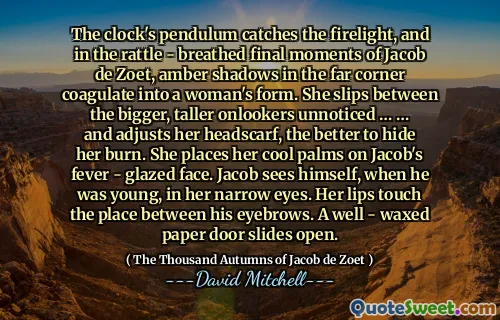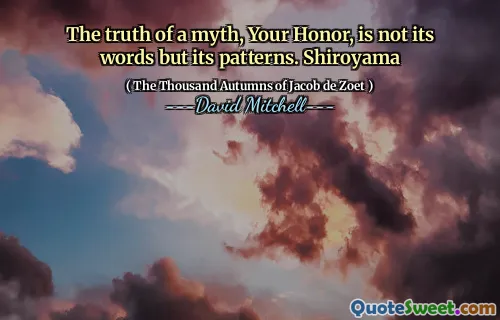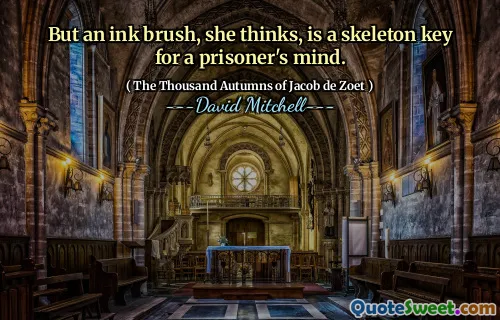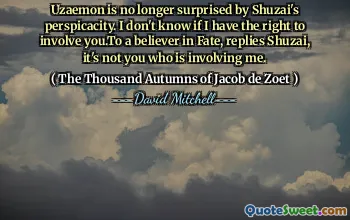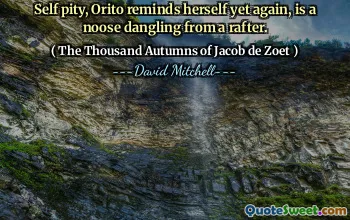"The Thousand Autumns of Jacob de Zoet," written by David Mitchell, is set in early 19th-century Japan during a time when limited foreign trade was allowed. The story follows Jacob de Zoet, a young Dutch clerk who arrives at the isolated island of Dejima with dreams of wealth and climbing the ranks in the VOC (Dutch East India Company). His arrival marks the beginning of a complex journey, not only in pursuit of riches but also in his struggle against cultural and societal barriers.
Jacob quickly becomes ensnared in the intrigues of the local Japanese society, particularly through his relationship with Orito Aibagawa, a talented woman caught in the constraints of her circumstances. Their bond challenges the rigid structures of their respective cultures and explores themes of ambition, honor, and the clash of East and West. The story intricately weaves their lives against a backdrop of political tension and the rapid changes of the era.
As the narrative unfolds, Jacob faces numerous moral dilemmas and personal conflicts, reflecting the struggles of colonialism and the quest for identity. The novel captures not just Jacob's personal journey but also the broader implications of cultural intersection, ultimately revealing the complexities of human connection in a world shaped by historical forces. Mitchell's masterful storytelling paints a vivid portrait of a pivotal period, leaving readers with profound thoughts on love, sacrifice, and the passage of time.
More »
Today Birthdays
1955 -
Max Lucado
1946 -
John Piper
1842 -
William James
1907 -
Abraham Joshua Heschel
1887 -
Aldo Leopold
1755 -
Alexander Hamilton
1976 -
Alethea Kontis
1971 -
Mary J. Blige
1825 -
Bayard Taylor
1943 -
Jim Hightower
1885 -
Alice Paul
1923 -
Carroll Shelby
1928 -
David L. Wolper
1954 -
Kailash Satyarthi
1972 -
Amanda Peet
1946 -
Naomi Judd
1970 -
Malcolm D. Lee
1955 -
Christian Marclay
1973 -
Rahul Dravid
1987 -
Jamie Vardy
1942 -
Clarence Clemons
1992 -
Fatima Sana Shaikh
1948 -
Larry Harvey
1930 -
Rod Taylor

